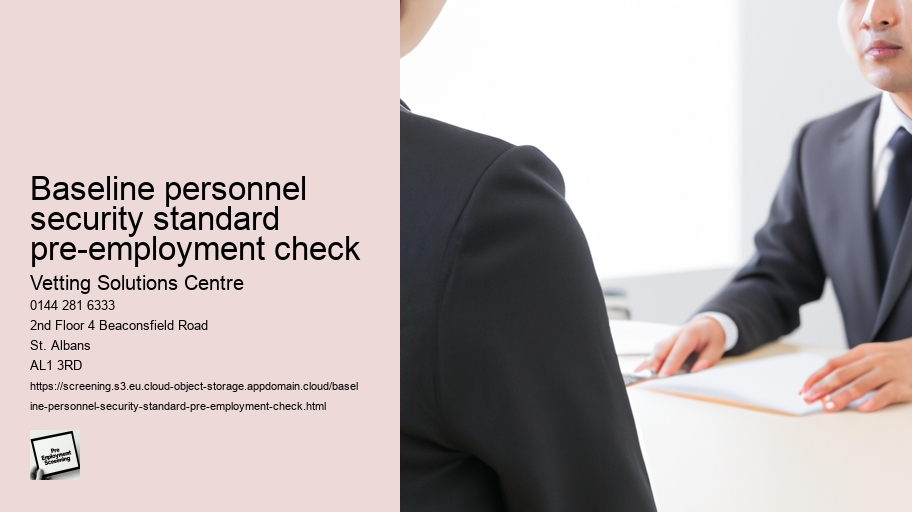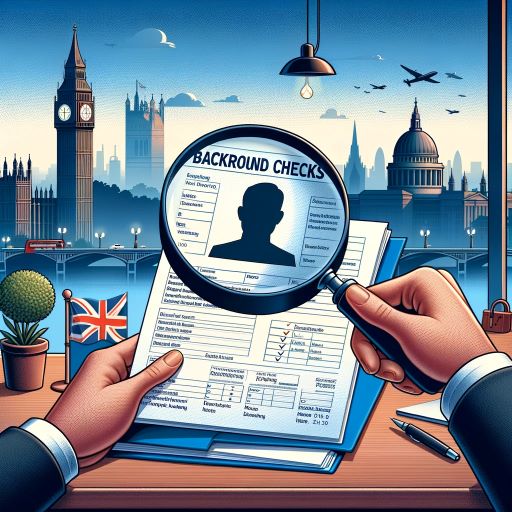

When classifying DBS checks, the level of disclosure varies based on the specific requirements of the role being evaluated. Different types of DBS checks cater to varying levels of disclosure to guarantee that employers have the necessary information to make informed hiring decisions.
What Is a Pre Screening Test for a Job? When considering a prescreening test for a job, it serves as an evaluation process to assess your qualifications, skills, and suitability for a specific role. These assessments may include interviews, background checks, drug tests, and personality evaluations.
Different levels of DBS checks provide varying degrees of information. The process typically takes 114 days for Basic, Standard, and Enhanced checks. Verify the DBS certificate authenticity before making a job offer based on the check results.
Moreover, there's an increasing emphasis on completing all four key elements of the BPSS standard – identity, employment history, verification of unspent criminal convictions, and verification of the right to work in the UK. This holistic approach enhances security measures and reduces the potential risks associated with personnel who don't meet the required standards.
Background checks in the UK encompass various types, including right to work checks, criminal record checks, employment references checks, educational references checks, and credit checks. Employers use right to work checks to verify employees' eligibility to work in the UK.
These practices include:
The Baseline Personnel Security Standard (BPSS) and the Disclosure and Barring Service (DBS) check are both used in the United Kingdom for background checks, but they serve different purposes and involve different levels of scrutiny.
While both are forms of background checks, their specific purposes, scope, and usage differ significantly, tailored to meet various security and safety requirements in employment and roles of trust
The BS7858 check refers to the British Standard (BS) 7858, which provides a code of practice for the security screening of individuals employed in a security environment. This type of vetting process is specifically designed for positions where the integrity and reliability of personnel are of paramount importance due to their access to secure areas, sensitive information, or involvement in the security sector. The BS7858 screening is often required for:
Security Personnel: This includes individuals working as security guards, CCTV operators, bodyguards, and any other roles directly related to physical security services.
Alarm, Lock, and Safe Engineers: Professionals involved in the installation, maintenance, or repair of security systems, locks, and safes, where they have unsupervised access to secure or sensitive areas.
Keyholders: Employees who have access to keys or codes for commercial properties, potentially outside of regular business hours, necessitating a high level of trust.
Staff in the Security Sector: This can extend to various roles within companies that provide security services, including management and support staff who might have access to sensitive operational information.
Individuals with Access to Confidential Information: Although not exclusive to the security sector, employees in roles where they handle or have access to confidential data or assets might also undergo BS7858 screening, depending on their employer's policies and the nature of the information.
Employees in Critical National Infrastructure (CNI): While not always mandatory, individuals working in or with CNI sectors (like energy, telecommunications, and water services) might be screened to BS7858 standards due to the sensitive nature of their work.
• Complying with legal and regulatory requirements.
3. Reputational Damage: Failure to conduct proper background checks not only results in financial and legal penalties but also leads to reputational damage.
Information Included Unspent convictions in England & Wales. Understand the scope of information in the basic check.

Role of BPSS in National Security Impact
• SectorSpecific Checks: Certain sectors may necessitate specialized checks. For instance, financial roles often require credit checks, while positions involving vulnerable populations mandate DBS checks to safeguard those under care.
So, next time you undergo a background check in the UK, remember the vital role that BPSS plays in ensuring your identity, trustworthiness, and integrity. By upholding BPSS standards, you not only protect sensitive information but also contribute to national security.

11. Safeguard the Organization: Avoiding unsuitable hires through preemployment checks can lead to improved retention rates and cost reduction. It helps in maintaining a positive work environment and reducing the likelihood of workplace conflicts or legal issues.
Ensuring compliance guarantees confidentiality, data privacy, and the upholding of company policies and procedures. By prioritizing compliance in hiring decisions, you not only safeguard your organization from potential legal issues but also foster a culture of integrity and accountability within your workforce.
Specific role requirements determine eligibility Fair and lawful use of disclosed information
• Spent and unspent convictions are covered.
• Damage to reputation
To ensure successful preemployment screening, it's essential to avoid common mistakes when conducting DBS checks. Here are some key pitfalls to avoid:

What Is a Background Check Uk? When conducting a background check in the UK, you explore into various aspects like ID verification, employment history, financial probity, criminal records, and global watchlist screening.
Usage Present to potential employers. Enhance your job application with a clean record check.
3. Credit Checks: Evaluating the candidate's financial history, including credit score and any outstanding debts, to assess their financial responsibility and potential risks related to handling company finances.
